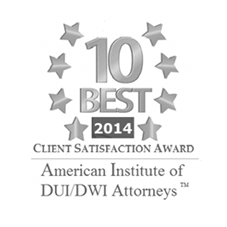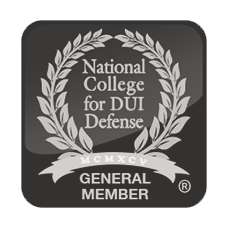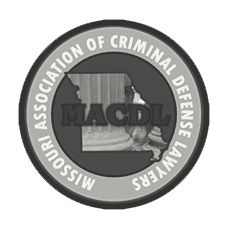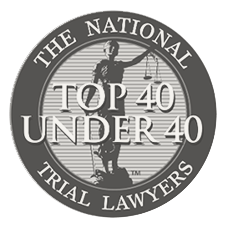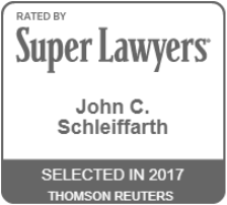When your practice, assets, and freedom are on the line, you need an experienced Missouri Federal defense attorney fighting for you. Whether you’ve been accused of defrauding an insurance provider or a federal health care program, we can help. A St. Louis healthcare fraud defense lawyer with JCS Law fights healthcare fraud charges with bold and aggressive attention to detail.
Our dedicated staff and attorneys can guide you through this scary ordeal. You’ve worked hard to build your business. Don’t sit back while the government attacks you without a fight. Speak with a St. Louis federal criminal defense lawyer today.

Healthcare fraud enforcement has cracked down since 2020
At the height of the COVID-19 pandemic, many patients now made use of telehealth options to receive care without traveling to a doctor’s office. However, this led to a large surge in cases of healthcare fraud, to the tune of $29 million for COVID-19 treatment alone. Since 2020, an additional $133 million in fraudulent actions have been associated with substance abuse treatment facilities.
The Department of Justice (DOJ), in conjunction with the U.S. Department of Health and Human Services (HHS), has created task forces to attack the problem.
Medicaid Fraud Control Units
Medicaid Fraud Control Units (MFCUs) operate in each U.S. state and several territories. They investigate, pursue, and prosecute Medicaid provider fraud and Medicare beneficiaries abuse. These units use professional investigators, attorneys, and auditors to perform their duties.
Medicare Fraud Strike Force
The HHS also provides a group of Medicare Fraud Strike Force teams that use data analytics to enable law enforcement groups at all levels to identify and prevent healthcare fraud.
You may face civil and criminal charges
The penalties for a conviction of healthcare fraud are harsh. For example, being found guilty of general Medicare fraud can bring up to ten years in prison, which can be longer if the actions cause a death. A conviction for fraudulent medical billing carries incarceration for up to five years plus a maximum $250,000 fine. If a patient is harmed by fraudulent actions, they may also pursue a civil lawsuit against the provider in question to recover damages.
Because of the widespread nature of healthcare fraud, many innocent practitioners may have been swept up in an attempt to curb wrongdoing. If you feel you are one of these providers, you will need experienced help from a St. Louis healthcare fraud defense attorney. A St. Louis healthcare fraud defense lawyer at JCS Law, is trained in negotiating with these agencies to present the strongest possible defense for our clients.
How can a St. Louis healthcare fraud defense lawyer help?
Depending on the circumstances, a range of charges may be brought, such as drug fraud, medical billing fraud, insurance fraud, and medication fraud. Investigations are managed by the appropriate agencies, including the U.S. Postal Service, the Federal Bureau of Investigation (FBI), and the Office of the Inspector General at the HHS. If a private insurance company suspects fraud, it will have teams of lawyers to aggressively handle these cases.
Fraud claims against Medicare and Medicaid are pursued without fail. The Fraud Control Units and Medicare Fraud Strike Force groups are well-funded and heavily staffed with investigators. Facing them will be a tremendous challenge if you do not have a reputable and tenacious St. Louis healthcare fraud defense lawyer at your side.
We will review the evidence in the case, gather documentation to defend your actions when possible, and work to achieve the best possible outcome. We know your assets, healthcare practice, and freedom are at risk, and our team will take every action available to maintain your innocence in the minds of the judge and jury.
We defend against the following charges
In Federal Health Care Fraud cases, all accounting records, medical coding/billing records, and even medical records can become extremely important in your defense. We have access to the top experts in these fields and can provide you with a top-notch full-service defense.
Illegal distribution of prescription drugs
Examples of this fraud include switching brand-name drugs for less expensive generic versions, shorting the pill count, filling prescriptions without an authorized request, and overbilling Medicaid.
Billing for services not rendered
Fraud occurs when a provider bills Medicaid or Medicare for services or supplies they did not render. This can include creating false records indicating items were delivered.
Billing for a non-covered service as a covered service
If a practitioner tries to bill insurance or Medicare for services that are not covered, claiming it is a covered service, this is typically considered fraud. Some instances may be innocent mistakes, but the investigators will thoroughly examine a practice’s records to determine if there is a history of these actions.
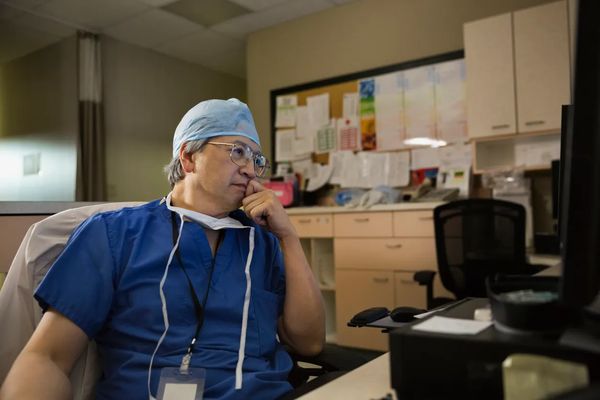
Misrepresenting services
This type of fraud usually involves the falsification of signatures or medical records in an attempt to bill for more expensive services. It may involve inaccurately recording the date and location of service or the name of the service provider.
Dates and locations of service
Billing for more visits or treatments than actually occurred is a form of fraud. Likewise, providers may bill for services they rendered on days when they were not on call, at the practice, or working. If a physician services multiple locations, investigators will look for evidence of billing for work in two or more places at the same time and date.
Provider of service
If a provider is listed for a billed service, but the care was actually given by someone else or someone without credentials, it is considered fraud. For example, practices must avoid billing services a nurse performs as if a physician performed them.
Waiving of deductibles and/or co-payments
Providers must adhere to their contracts with insurance providers and avoid waiving co-payments or deductible amounts. The only acceptable cause is if the patient suffers general financial hardship.
Incorrect reporting of diagnoses or procedures (includes unbundling)
Insurance coding determines the type of service and its reimbursement amount, and fraud occurs when a practice reports procedures separately (called unbundling) to receive higher payouts. Bundled services are paid at a lower amount, and attempting to extract more from Medicare and Medicaid is illegal.
Overutilization of services
Performing unnecessary procedures and tests in order to bill insurance and Medicare/Medicaid programs more is fraud. This is especially common in alcohol and drug rehabilitation programs.
Corruption (kickbacks and bribery)
The healthcare industry is not immune to instances of corruption, most often in the form of kickback payments for providing referrals. Sending a patient for MRIs, CT scans, or other expensive procedures and receiving or paying a bribe is considered a form of fraud.
False or unnecessary issuance of prescription drugs
A recent cause of widespread fraud during the opioid drug epidemic was the unnecessary or false distribution of prescription medications. Painkillers, Adderall, and other medicines have a high street value, and unscrupulous providers may elect to look the other way when patients continually request more pills than needed.
What are some defenses to healthcare fraud?
There are several possible defenses to healthcare fraud charges. To create the strongest defensive approach, you need a skilled St. Louis healthcare fraud defense attorney who understands how to effectively use each one, as well as a combination of several.
The federal government is highly focused on bringing those who commit fraud to justice, and they will not hesitate to apply their tactics to push for a conviction. You need a legal team committed to your well-being and freedom.
At JCS Law, we are here to construct a robust defense, including common strategies such as:
Compliance program
Every successful medical practice should have a system for tracking billing and other activities to avoid fraud. Developing a strong compliance program not only reduces the risk of fraudulent actions, it provides powerful evidence that you did not intend to commit a crime. Destroying the prosecution’s attempts to show intent on your part can be highly beneficial in having the charges against you dropped.
Consent
Maintaining detailed records of interactions with patients and insurance providers will benefit you if you need to demonstrate that you have the consent of the claimant. This does not absolve you of any clearly illegal acts, but it can reduce the evidence of intent to commit fraud. Showing proof that you had consent, in writing or audio recording, can be used as a defense.
Insufficient evidence
The government will bear the burden of proving beyond a reasonable doubt that you committed the fraud. They will need to present substantial evidence of your intent and your actions. If there is not enough documentation or testimony to convince the jury, you can avoid a conviction.
Your St. Louis healthcare fraud defense lawyer will further persuade them to rule in your favor by presenting materials supporting your innocence.
Lack of intent or mistake
Proving fraud is based on proving the intent to commit a crime. If you made a mistake but were otherwise acting in good faith, your defense attorney can present evidence of your past record and materials showing the error. If the act in question was a billing oversight, perhaps due to an employee in training, then your attorney can argue against a fraud conviction by showing a lack of intent.
Safe harbor provisions in the Anti-Kickback Statute
The Anti-Kickback Statute provides many “safe harbor” provisions that could be used in your defense. Providers may have leeway in offering discounts on space or equipment rental, management contracts, discounts, and some kinds of referrals.
These allowances can help you defend against fraud charges if you fall within the provisions. Your attorney can assess how this may support your case.
Stark Law exceptions
The Stark Law, or physician self-referral law, is part of the Social Security Act. It prohibits doctors from referring patients to other providers with whom they have a family or financial relationship. However, there are some exceptions in the Stark Law that allow referrals in limited circumstances. This can be complicated, however, since accepting payment for the referral could trigger the Anti-Kickback Statute and work against you.
Voluntary self-disclosure
It may be tempting to disclose any fraudulent actions to the Office of Inspector General (OIG), hoping it will reduce the penalties you may face. In fact, the OIG provides numerous processes for self-disclosure of potential fraud in federal insurance programs. If you made an error and want to alert them to the situation, it is admirable to try to correct it.
Doing so can result in a reduction of payments and disruptions to your practice. You can face any penalties and get back to serving patients without the expense and commitment of a government investigation. However tempting this path may be, it is always best to consult with a knowledgeable St. Louis federal criminal defense lawyer before self-disclosing. The intent and action to self-report can be used in your case, but whether to report at all should be guided by an experienced attorney.
What are some common questions about healthcare fraud charges?
At JCS Law, we answer questions about healthcare fraud cases every day from our clients who want to protect their freedom and their practices. Here are some of the most common ones our attorneys hear.
Why do I need a lawyer if I’m just being investigated?
Being under investigation is a sign that you are already at tremendous risk of being charged. The best way to avoid an arrest is to hire a top-notch healthcare St. Louis healthcare fraud defense lawyer immediately. Your lawyer will assess the circumstances and begin building your defense strategy.
Working with a defense attorney allows you to concentrate on managing your practice while we stay on top of the official investigation. At JCS Law, we will share details with you and advocate on your behalf, negotiating to protect your rights throughout the process.
If I’m convicted, will I be excluded from Medicare?
Yes, you will be excluded. According to the Office of the Inspector General, anyone who is convicted of fraud or other criminal offenses against Medicare or Medicaid will be barred from participating in those programs.
Our St. Louis healthcare fraud defense lawyers are ready to help
If you or a loved one fear you are being investigated, are facing an internal audit/investigation, have been contacted by law enforcement, or have been charged with Federal Health Care Fraud in Missouri, call us today at (314) 561-9690 for a free consultation.
Featured In:
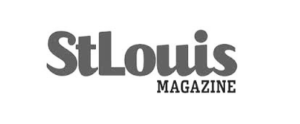
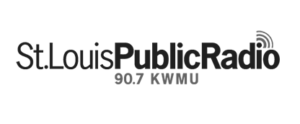
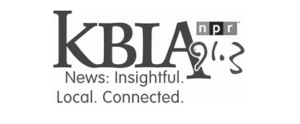
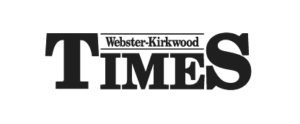
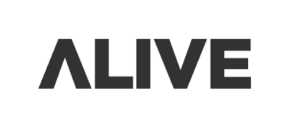
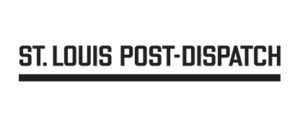
Award winning
law firm
75 W Lockwood Ave #250, Webster Groves,
MO 63119, United States

